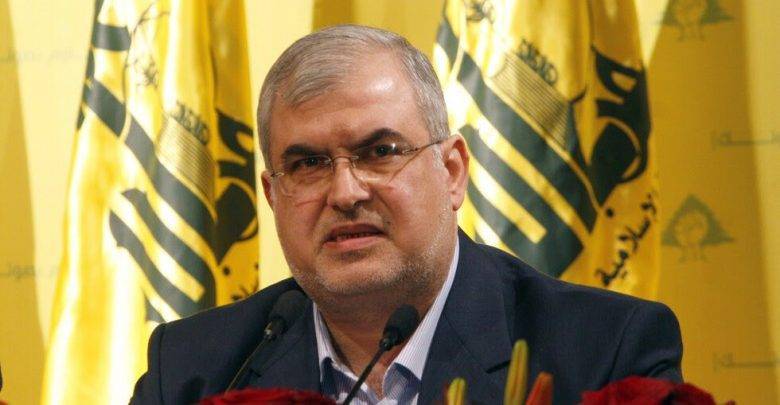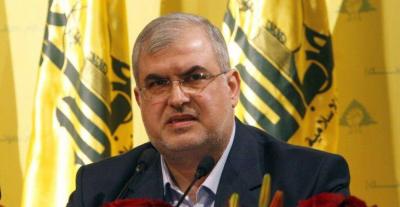Head of the Loyalty to the Resistance bloc, MP Mohammad Raad, stated that the crisis Lebanon is experiencing began with the presidential vacancy and has led to numerous problems that hinder the country's progress. During a memorial service held in the southern town of Zbadin, Raad commented, "Today, we are in a nearly collapsed state, and the national interest requires us to rebuild the structure that will enable us to chart a path to revival and resume our approach in confronting our enemies lurking around us."
Raad emphasized that "our fronts of confrontation are not solely military against Israel; they expand and extend to sometimes include the extremists on one side, and sometimes the hypocrites on the other, in addition to the abhorrent values that are intended to invade our societies, destroy our families, and confuse individuals to the point where they no longer know which direction to take."
He added, "We bear responsibility and build our stance through solidarity, coordination, and understanding with all loyal and sincere individuals to our country. We are establishing a strong alliance in our vision and path with the Amal Movement to achieve the presidential entitlement, ensuring we have a president who guarantees that he would not betray the resistance or undermine its achievements and sacrifices, and that we can together initiate the rebuilding of the structure that aims to be shattered and destroyed to preserve the inclination that the West seeks to safeguard for the Israelis, which is an inclination of security from fear and threats."
Raad noted that "when it comes to Western policies, when it involves Israel, Western countries abandon all their claims, values, commitments, and promises to us, opting instead to execute what serves the Israeli interest. This was evident during the vote for extending the UNIFIL mandate," and he expressed astonishment at "the positions of countries that assumed Lebanon had the right to have UNIFIL coordinate its movements with its government and army. However, by some magical maneuver and in the dead of night, their position changed, and even those who supported the amendment became opposed to it because the current Israeli situation is fragmented and deteriorating, and they want to bolster Israel with additional protective strength through international resolutions to maintain some balance against those who stand ready to confront it."




